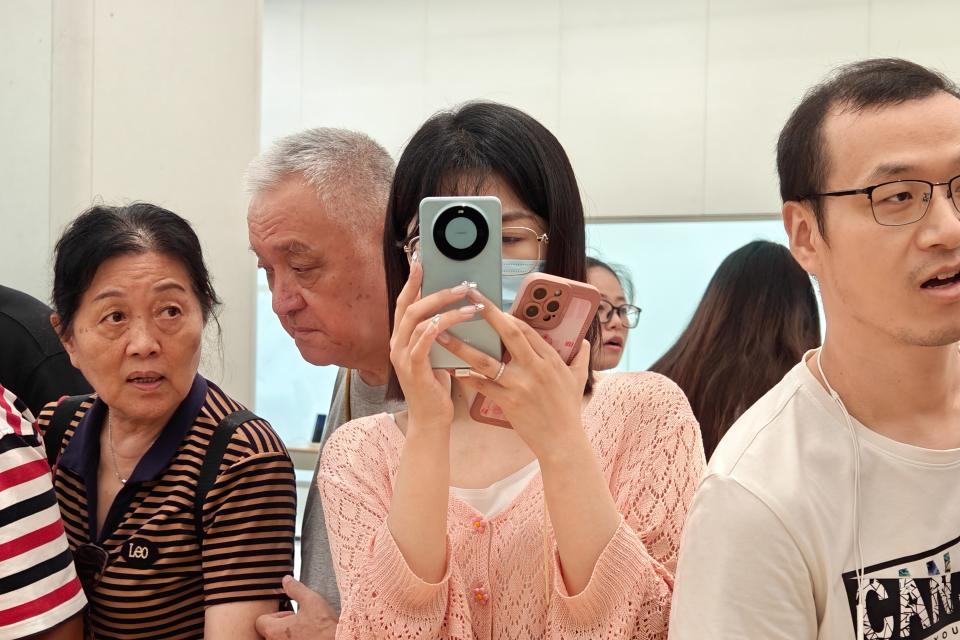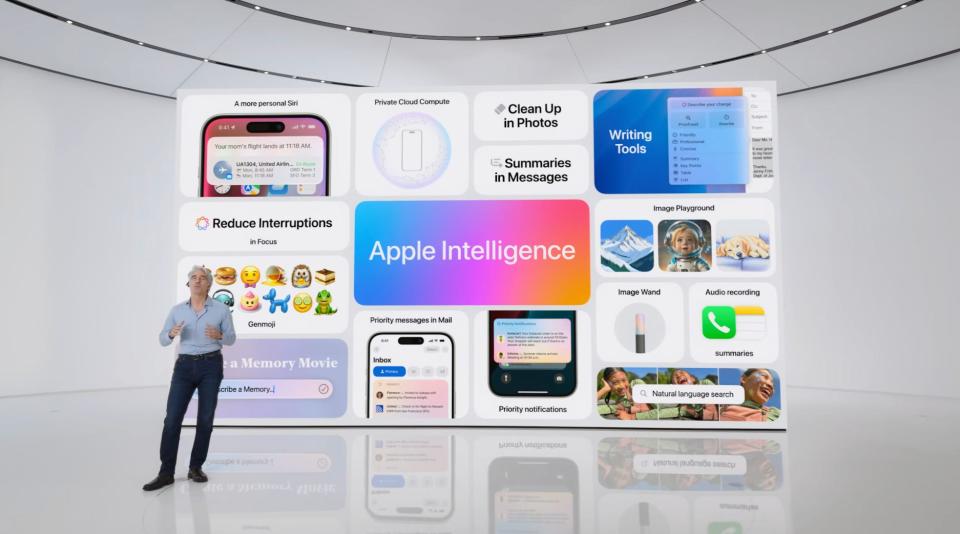Apple is losing ground in China. Here's how the iPhone 16 can help.
Apple really needs the iPhone 16 to be a hit in China.
The company has seen iPhone sales slide in the country this year.
Domestic smartphone makers such as Huawei have been eating their lunch.
When Tim Cook was last in China on official duties, he made no secret about his mission to charm.
During a March trip to the Far East, the Apple CEO posted videos of his culinary adventures to the social media app Weibo, met with local stars, and celebrated with employees in Shanghai at the opening of a new store in the city.
He'll be hoping the charm offensive paid off.
On Monday, Apple is set to unveil its newest slate of iPhones from its Cupertino headquarters at a time when its sales in China — the company's most important international market — have been falling in the face of weakening consumer interest.
Apple is losing ground in China
Apple received strong warning signals in China in the first six weeks of the year, as iPhone sales dropped by a staggering 24%, according to data from research firm Counterpoint. The downward trend has continued in the following months.
Counterpoint data published at key points throughout the year showed a 19.1% year-on-year drop in Apple's share of smartphone market sales in China in the first quarter, followed by a 5.7% drop in the second quarter.
It's a worrying sign for Apple, which had already got a hint of the shifting consumer sentiment in China in its last full fiscal year. The company reported a rare decline in net sales to $72.6 billion from $74.2 billion the year before.

It's worth noting that in its 15-year history with the iPhone in China, Apple has been the dominant force in the smartphone market. iPhones have come to represent a symbol of wealth to citizens who carry them around, and they have outperformed offerings from local rivals, too.
But that has changed over the past year, largely due to the rise of premium smartphones from domestic vendors hoping to prove their devices are now competitive with the iPhone. Huawei has been the biggest winner among Apple's Chinese rivals.
According to Counterpoint, Huawei's smartphone sales grew by almost 70% in the first three months of 2024 and 44.5% in the next three months, a period in which it benefited from the discounts offered during the 618 shopping festival.
Key to Huawei's success has been the release of new phones over the past year, such as the Mate 60 Pro and Pura 70 Ultra. These phones come with advanced processors that China used to source from the US before export controls came into place and speeds that match 5G.
Other local smartphone manufacturers, including Honor, Xiaomi, and Vivo, have also seen gains over the past year. Can Apple take them on?
Betting on Apple Intelligence
Apple will, of course, hope that its new generation of phones can spark a turnaround.
The upcoming iPhone 16 will introduce users to Apple Intelligence, its new suite of generative AI features, first introduced at its June Worldwide Developers Conference.
Cook will hope that Apple Intelligence, which will only be available on the iPhone 15 Pro and the iPhone 16, will trigger an upgrade cycle as consumers seek to test out a technology that he says will "deliver truly helpful intelligence."

Apple's customers in China will have to forgo a key part of the smartphone maker's new AI features, however, as its partnership with ChatGPT will not be rolled out in the country. The company is seeking a local partner to bring more advanced chatbot features to Apple Intelligence in China.
In a research note on Friday, analysts at Wedbush wrote that they expect "the key China region to see improving and accelerating growth" once again with the launch of the "highly anticipated AI-drive iPhone 16" lineup.
Meanwhile, Paolo Pescatore, founder of research firm PP Foresight, told Business Insider that Apple "still has an enviable position of a strong, tightly integrated hardware, platform, and services" offering that he sees as still having an edge over local rivals in China.
Apple will be banking on consumers buying the hype behind its AI.
Read the original article on Business Insider
